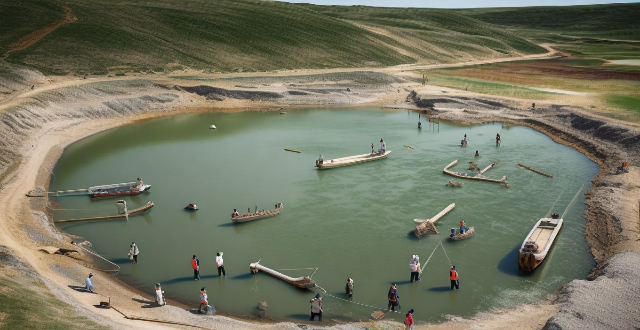Adapting agriculture to cope with climate change involves various strategies, including crop diversification, water management, soil health improvement, livestock adjustments, use of technology, agroforestry, early warning systems, education, policy support, and carbon sequestration. These measures help maintain yields, ensure food security, and sustain livelihoods amidst changing climatic conditions.

Adapting Agriculture to Cope with Climate Change
Climate change poses significant challenges for the agricultural sector. Adaptation measures are crucial to ensure food security, maintain yields, and sustain livelihoods. Here's a detailed exploration of how agriculture can be adapted to cope with the effects of climate change:
1. Crop Diversification and Rotation
- Diversify Crops: Planting a variety of crops that have different water and temperature requirements can reduce vulnerability to extreme weather conditions.
- Crop Rotation: Rotating crops can help maintain soil health, reduce pests, and improve resilience to weather changes.
2. Water Management
- Irrigation Efficiency: Adopting efficient irrigation systems like drip or sprinkler irrigation can optimize water usage and minimize waste.
- Water Harvesting: Collecting rainwater and runoff can provide additional sources of water during dry spells.
3. Soil Health Management
- Organic Farming: Using organic practices can improve soil quality, increase water retention, and enhance biodiversity.
- Conservation Tillage: Minimizing soil disturbance through reduced tillage can help maintain soil structure and carbon content.
4. Livestock Management
- Breeding Heat-Tolerant Livestock: Selecting breeds that can tolerate higher temperatures can reduce heat stress in animals.
- Improved Feeding Practices: Providing nutrient-rich feed and ensuring access to clean water can support animal health during extreme weather events.
5. Use of Technology and Data
- Weather Forecasting Tools: Utilizing advanced forecasting tools can help farmers plan their activities around expected weather patterns.
- Precision Agriculture: Employing technology like GPS and drones can optimize input use and improve yield efficiency.
6. Agroforestry and Tree Intercropping
- Agroforestry Systems: Integrating trees into farming systems can provide shade, improve soil quality, and increase biodiversity.
- Tree Intercropping: Planting trees alongside crops can offer wind protection and enhance ecosystem services.
7. Early Warning Systems and Insurance
- Establish Early Warning Systems: Developing systems to alert farmers about impending weather threats can help them prepare and protect their crops.
- Agricultural Insurance: Encouraging participation in insurance schemes can provide financial security against climate-related losses.
8. Education and Training
- Farmer Education Programs: Educating farmers about climate-smart agriculture techniques can empower them to adapt effectively.
- Capacity Building: Providing training on new technologies and best practices can enhance farmers' ability to cope with changing conditions.
9. Policy Support and Infrastructure Development
- Government Subsidies: Offering subsidies for climate-friendly inputs like drought-resistant seeds can encourage adoption.
- Infrastructure Upgrades: Improving infrastructure such as roads and storage facilities can reduce post-harvest losses and increase market access.
10. Carbon Sequestration and Greenhouse Gas Reduction
- Carbon Sequestration: Implementing practices that sequester carbon in soils, like no-till farming, can contribute to climate mitigation efforts.
- Reducing GHG Emissions: Adopting practices that reduce methane emissions from livestock and nitrous oxide from fertilizers can lessen agriculture's environmental footprint.
By adopting these strategies, agriculture can become more resilient to the impacts of climate change, ensuring sustainable food production for future generations.